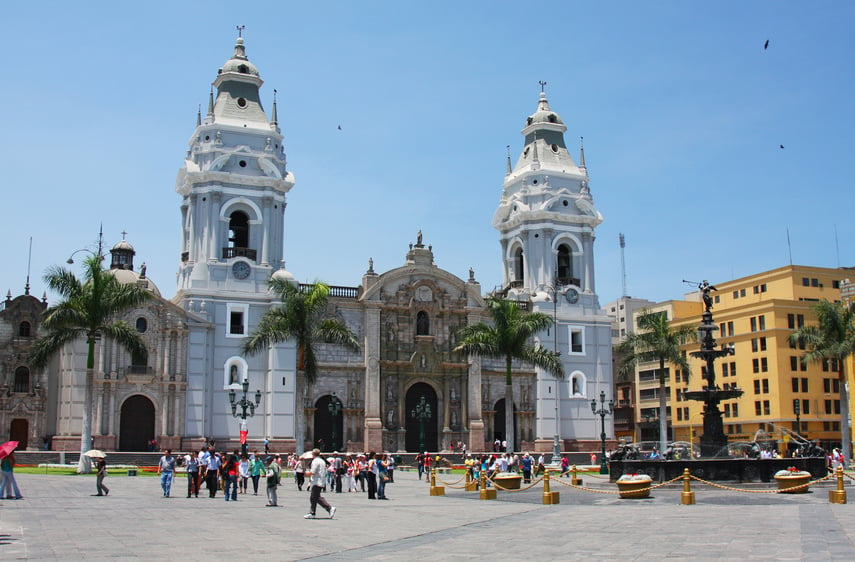Primary anti-bribery legislation and enforcement agencies
Peruvian Criminal Code (PCC) – Legislative Decree N° 635
Prohibits passive and active bribery to Peruvian and foreign public officials
National Anti-Corruption Plan
United Nations Convention Against Corruption
Inter-American Convention Against Corruption
Investigating agency: The National Police Department (PNP), the Attorney General’s Office (Ministerio Público)
Prosecuting agencies: Peruvian Judicial Courts
Offenses
Bribing Public Officials (Art. 397 PCC)
A person is guilty of an offense if:
- he or she offers, gives or promises to a public official a donation, promise, benefit or advantage, to persuade him or her to perform or omit acts in violation of his or her obligations, or without violating them.
Bribing Foreign Public Officials (Art. 397-A PCC)
A person is guilty of an offense if:
- he or she offers, gives or promises to any foreign public officer or any officer of an international organization, a donation, promise, benefit or advantage (for his or her own benefit or a third person’s benefit), to persuade such officer to perform or omit acts in violation of his or her obligations, or without violating them, in order to obtain or maintain a business or another undue advantage in the development of economic and commercial international activities.
According to Law N° 30424, which will be effective on July 2017, corporations are criminally liable only for active bribery of foreign public officials when the offense is committed by their managers, representatives, employees or third party servicers on behalf of the legal entity[1].
Corporations are not criminally liable for the active bribery of Peruvian public officials, but can be subjected to “accessory measures” if the offense was committed in the exercise of corporate activities or if the legal entity was used to commit the crime or cover it up..
[1] It is likely that criminal liability of legal entities will be extended to other crimes (e.g. bribery of Peruvian public officials, money laundering, terrorism financing) in future laws. The government has required legislative powers to that purpose, as well as to implement other measures to combat corruption.
Extraterritorial application: Yes, when the conduct is performed:
- wholly or partially outside Peruvian territory, when the offense is committed by a Peruvian citizen or against a Peruvian official, provided that the conduct is considered as an offense also in the country where it was performed, and the agent who committed the offense entered into Peruvian territory either way.
Penalties – Criminal and/or Civil liability
For an individual
- Bribery of Peruvian Public Officials: Imprisonment for not less than three years but not more than five years, and a fine of 365 to 700 fine-days1
- Bribery of Foreign Public Officials: Imprisonment for not less than five years but not more than eight years, and a fine of 365 to 700 fine-days
Secondary penalties such as prohibition from carrying on the professional or corporate activity in the exercise or the context of which the offense was committed, and prohibition from being elected or designated for a public office for up to five years
For corporations:
Legal entities that are found liable for the commission of the crime of active bribery of foreign public officials can receive the following penalties:
- Fines up to six times the benefit obtained or expected to be obtained from the commission of the crime.
- If such benefit can not be quantified, a scale of fines will be applied, which, depending on the annual income of the legal entity, may vary from 10 Tax Units up to a maximum of 500 Tax Units (US$ 604,000 approximately)
- Disqualification in the form of:
- Suspension of activities of the legal entity (up to 2 years).
- Temporary (up to 5 years) or definitive prohibition to conduct activities of the same kind or nature.
- Suspension to enter into agreements with the government (up to 5 years).
- Cancellation of licenses, concessions, rights and authorizations (administrative or municipal).
- Temporary (up to 5 years) or definitive closure of premises or establishments.
- Dissolution of the legal entity (e.g. in case of “front” or “shell” corporations).
If the corporation implements a compliance program before the commission of the crime, it can be exempted from liability and, therefore, no sanction will be applied.
1 It is likely that criminal liability of legal entities will be extended to other crimes (e.g. bribery of Peruvian public officials, money laundering, terrorism financing) in future laws. The government has required legislative powers to that purpose, as well as to implement other measures to combat corruption.
2 According to Peruvian Criminal Law, a “fine-day” is a unit of measure used that refers to the economic fines that the convicted must pay to the state. A fine-day is equivalent to the average of the daily income of the convicted and is determined based on his assets, income, earnings, spending levels and other external signs of wealth.
The amount of the fine-day may not be less than 25 % nor more than 50% of the daily income of the convicted when he or she is living exclusively off his or her work.
